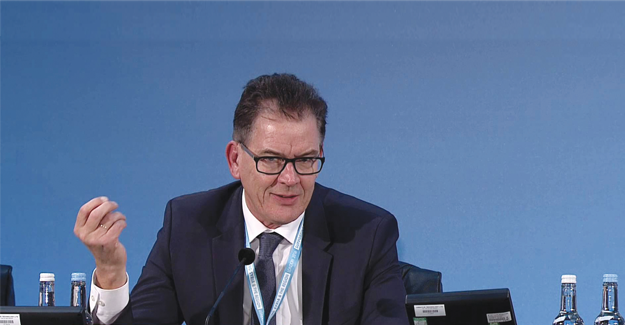
'Partnership For Sustainable Textiles' Unraveling
Germany's federal minister for co-operation and development Gerd Müller established ‘The Partnership For Sustainable Textiles’ in 2014. “We do not want to wear clothing made by people whose human rights are being trampled,” Müller had stated at the time.
Yet three years after the Partnership was formed, disillusionment is setting in. The Federal Ministry for Economic Co-operation and Development (BMZ), which had originally wanted to oblige large firms to uphold certain social and environmental standards, has been forced to accept the fact that some of those large fashion companies do not want to be told which guidelines they have to follow.
Instead, an alliance was formed in which every member regularly presents a list of measures that it has decided upon itself. The main thrust of such measures is to improve working conditions in the countries where companies' garments are actually being produced. The Partnership for Sustainable Textiles, an alliance of business federations, firms and non-governmental organisations, had a peak of nearly 200 members but has seen dozens quit and others excluded in the past three years. Just 34 members have so far presented plans to improve conditions at so-called sweatshops in countries where they source from.
Withdrawals weaken the alliance
In late 2016, German members in various working groups agreed upon a number of paths forward. The Partnership's steering committee, which itself represents members from various production sectors, determined that members must present concrete plans listing their self-declared obligations, so-called ‘Roadmaps’, by the end of March 2017. But some 40 companies and associations refused to go along with the plan. They presented no specific steps to establish controls, and thus, were forced to leave the Partnership.
The European supermarket chain Real and the traditional German clothing company Trigema were among those who left the alliance. In early 2017, some 190 members, including clothing industry giants such as Adidas and Gerry Weber as well as a number of unions and non-governmental organisations (NGOs), belonged to the Partnership. Now it has 148 members.
Trigema owner and CEO Wolfgang Grupp says, “I got out a couple of months ago because I thought it was senseless that I, who produce exclusively in Germany, was supposed to draft a roadmap stating that I was not using child labour and that I was abiding by German social laws. I was told that I would have to hire someone to monitor and prove that we were actually doing what the law determined we should. That is all he would do, day in, day out.” Trigema gets its thread and cotton from Turkey and Greece, but says that its partners there are family businesses that are regularly inspected and certified, a fact that Grupp emphasises.
In general, Grupp thinks cooperation in the textile industry is a good idea, “but the question of feasibility remains.” If big companies withdraw, and prices go up for members because of stricter regulations, then those companies are put at a competitive disadvantage.
Small companies losing out
At the moment, the Partnership's members cover about 50% of the German textile market. In this case: more is more, the larger the number of participating textile manufacturers the greater the pressure they can put on suppliers to uphold improved working standards. But fear of competitive disadvantage and of detailed demands have tended to scare away smaller companies.
The international clothing giant H&M, on the other hand, is still a member of the Partnership for Sustainable Textiles. Anna-Kathrin Bünger, spokeswoman for H&M Germany, says that the company believes that the alliance is very important in order to further sustainability in the clothing industry.
Textile Excellence
If you wish to Subscribe to Textile Excellence Print Edition, kindly fill in the below form and we shall get back to you with details.












